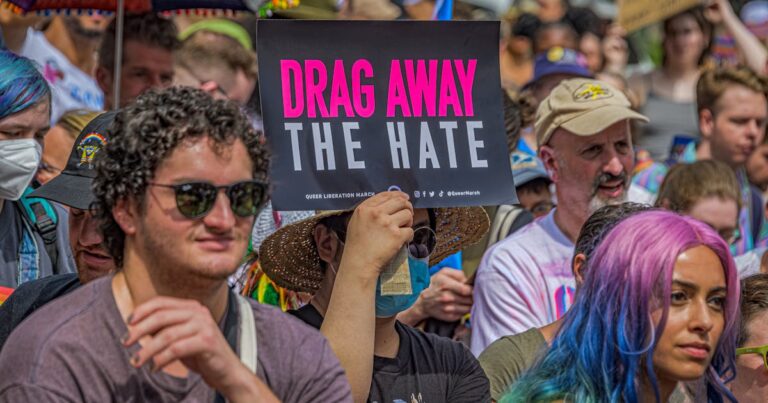Earlier this month, an Austin brewery decided to close for the day after receiving a bomb threat that specifically targeted the drag brunch it hosts. The threat was emailed to Brewtorium Brewery & Kitchen on the day of its Legendary Drag Brunch & Market, claiming that a pipe bomb was being placed inside the restaurant’s offices. The email also reportedly said, “Fuck drag queen trash.” A few days later, a Pride and Black Lives Matter sign was stolen from an Austin church. An associate pastor said it looked like someone ran over the sign with a car. Texas has faced far-right and Christian nationalist harassment of drag and pride events in the state over the past few years, with people sometimes bringing up Jesus Christ and calling drag brunch attendees “groomers.” The Texas Legislature also tried to effectively ban drag in 2023, but the ban was ruled unconstitutional.
Police came to investigate a threat to Austin’s Brewtorium, but no bomb was found. “After engaging with our liaisons at the Austin Police Department and the FBI throughout the day, it has been determined that we are likely the victim of a prank that has recently affected several establishments in major cities across the United States,” Brewtorium owners said in a statement to Eater Austin. (In May, the FBI issued an advisory about possible threats to Pride, but it focused only on “foreign terrorist organizations.”) No one was hurt, but the prank bomb achieved the intended goal of such threats: shutting down the event. It might also leave others wondering whether it’s safe to hold Pride events in the future.
Attacks targeting this year’s Pride events have not been limited to states and regions with anti-LGBTQ laws, or to areas where Trump has a prominent base of support. In June, a week after Beverly Unitarian Church in Chicago held its first-ever Pride event, a Pride flag was pulled down and burned on the church’s lawn. In response, congregants added more Pride colors to the outside of the church and are planning a second Pride event later this month. “We’re not going to disappear. Our beliefs are not going to disappear. Our faith in people is going to disappear,” Beth O’Grady, president of the church’s board of directors, told local CBS News.

